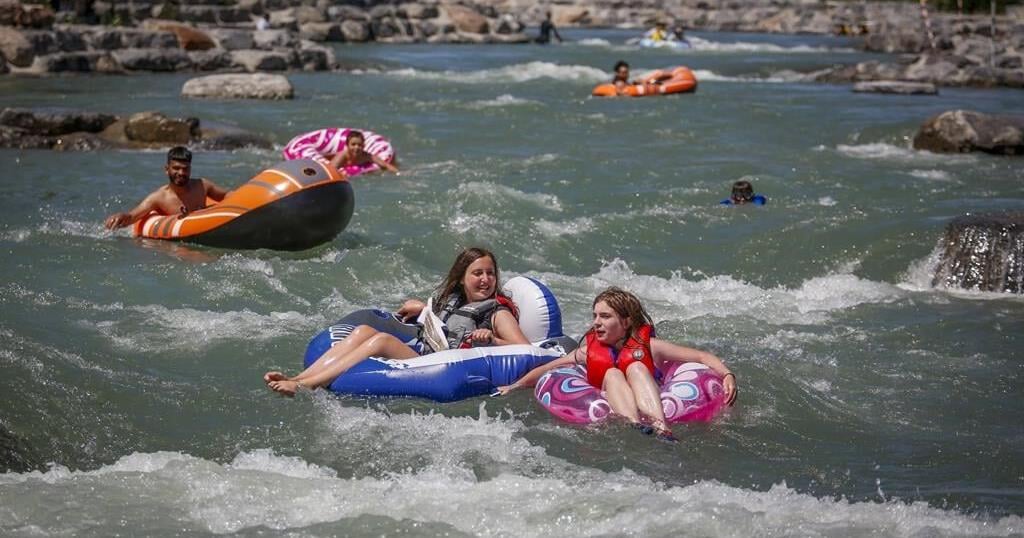CALGARY – As Western Canadians sweat under a renewed heat wave, Calgary emergency crews say they continue to bail out rivergoers who are trying to beat the heat by navigating swift currents on dime-store pink flamingo floaties.
“We are regularly responding to emergencies on the river, and the most common reason we’re called is people are purchasing plastic floaties, rafts, flamingos that are not meant for swift water,” Carol Henke with the Calgary Fire Department said Wednesday.
“Those are meant for pool scenario. Those crafts can rip and puncture very easily.”
Henke said most of the 50 calls the department has responded to so far this month have been to rescue people stranded on the Bow River, because they didn’t have the appropriate gear to float.
Henke said crews will increase their presence along the river to educate people on the types of tubes and rafts that float safely on the water.
The number of people expecting to seek relief on rivers, lakes and pools in the West is expected to rise in the coming days, as temperatures are forecast to spike and linger in the 30 C range.
Heat warnings remained in place Wednesday for most of Alberta, western and northern Saskatchewan and parts of the Northwest Territories and British Columbia.
Meteorologist Terri Lang said temperatures over the next six days were expected to be hottest in Alberta and Saskatchewan, where some communities could reach daytime highs of 35 C and overnight lows between 12 C and 20 C.
“For this heat event, it’s not so much the intensity as opposed to the duration people should be aware of,” said Lang with Environment and Climate Change Canada.
“We’re not getting those 40 C egg-fryers. It’s more about (the temperature spike) … for a while.”
Lang added the weather can be tough for people who don’t have air conditioning, including the elderly, those with health conditions, first responders and the homeless.
“There’s a lot more that go into heat warnings than just, ‘Let’s get out to the lake and get on the boat,’” Lang said.
Temperatures may start to cool down by the middle of next week, she said.
“It’s not looking like anything (changes) any time soon.”
In Calgary and surrounding communities, the heat wave came as residents remained under a ban from watering lawns and cleaning driveways and windows. Residents can use watering cans for plants and trees.
Calgary Mayor Jyoti Gondek told a news conference Wednesday that testing on the city’s new water main feeder is going well and the outdoor watering ban may be lifted Thursday.
In the meantime, she said, Calgarians need to take care to beat the heat.
“I’m asking we all check in on neighbours and family who might need a hand with watering their garden or finding a cool spot for the day,” said Gondek.
The city has listed online a number of cooling locations in libraries and recreation centres, where residents can refill water bottles, use water fountains or just get a break from the sun.
In Edmonton, emergency crews have also been busy responding to heat-related calls.
Alberta Health Services said there were 46 such calls in the city between July 3 and Monday. The majority of people fell ill from too much sun while working or participating in sports outside.
Boyle Street Community Services said those living on the streets can be hardest hit by heat, and the agency would appreciate water donations.
“Whenever we get a heat wave, we check on people frequently and make sure that people that we can find are doing OK in the heat,” said Marliss Taylor, a spokeswoman for the agency.
A fire ban was also still in place in large parts of Alberta and Saskatchewan due to the hot, dry conditions.
This report by The Canadian Press was first published July 17, 2024.
— By Fakiha Baig in Edmonton and Jeremy Simes in Regina

























